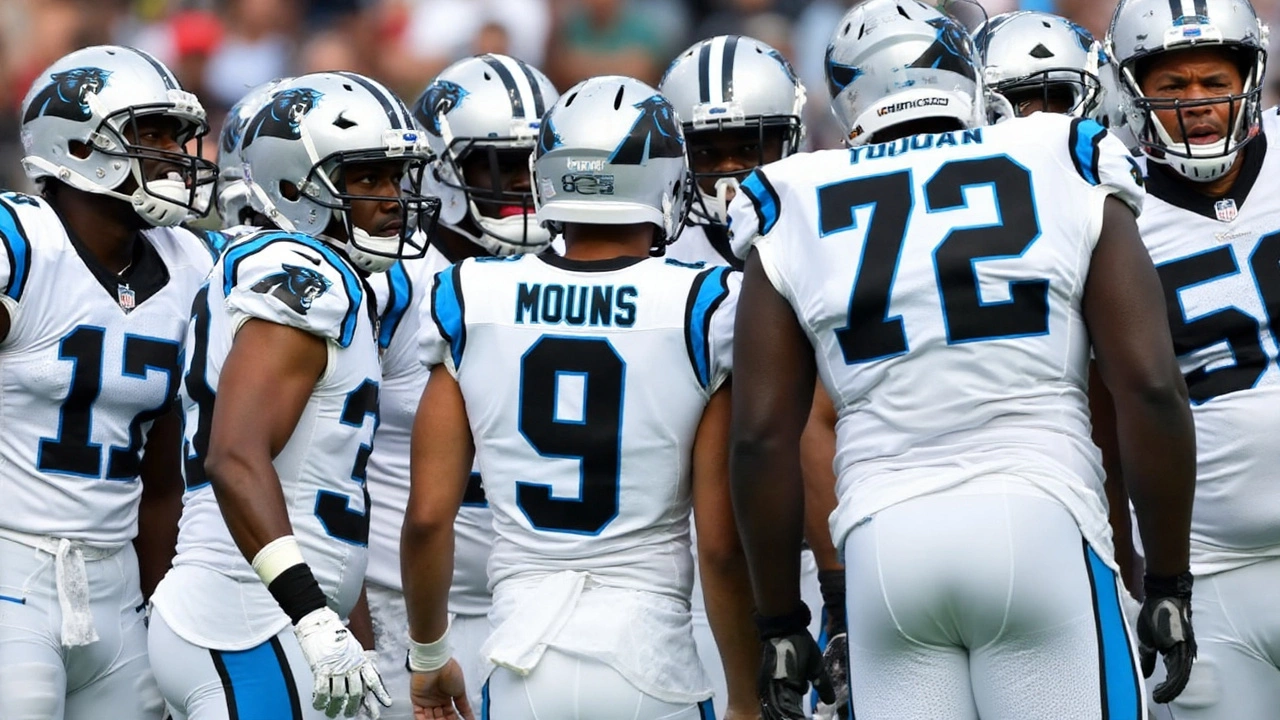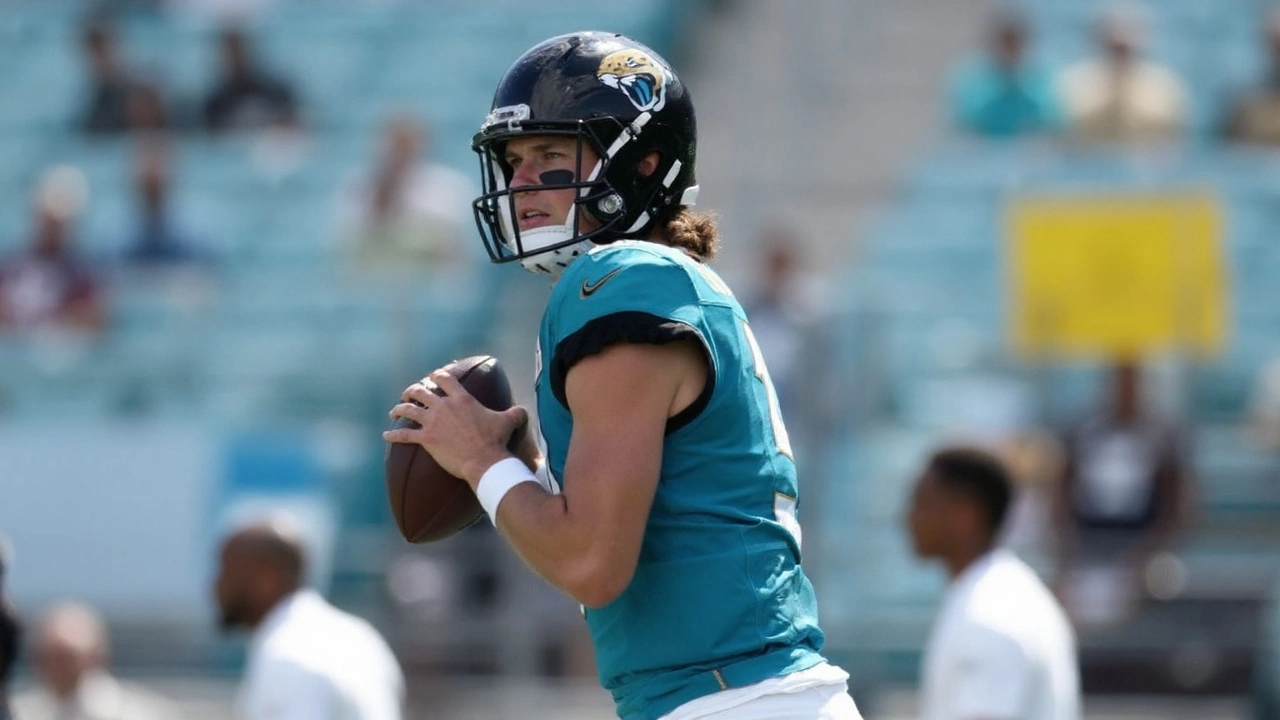Jacksonville Jaguars open with 26–10 win over Panthers in Liam Coen’s debut

A storm, a debut, and a statement
For a franchise trying to turn the page, the scoreboard had the last word. The Jacksonville Jaguars handled the Carolina Panthers 26–10 on opening weekend, a clean, composed start to the Liam Coen era that arrived with a one-hour weather delay, a few self-inflicted errors, and a steady response to both.
The delay could have flattened the energy in a home opener. It didn’t. Coen and his staff treated the pause like a reset more than a roadblock, huddling players, reviewing calls, and keeping the sideline loose. Afterward, Coen said the team had braced for the possibility: "We talked about this going into the game that this was a possibility. We talked about it this morning as a staff." For a first game together, that planning mattered.
When play resumed, Jacksonville looked organized rather than rusty. The offense didn’t explode so much as grind, staying on schedule enough to let Trevor Lawrence control the tempo and keep Carolina off-balance. Lawrence played with calm feet and better pocket feel, sliding away from pressure and buying time without drifting into trouble. One scramble across the 35-yard line extended a drive that might’ve died last year. Those extra seconds opened easy throws and kept the Panthers from teeing off.
New faces helped. Hunter Renfrow found soft spots in coverage and moved the sticks, including a first-down catch at the 40 that was more about timing and trust than fireworks. When Lawrence needed a release valve, Renfrow was there, a small but important sign of chemistry building early in the season.
Jacksonville’s defense delivered the rest. The group kept everything in front, limited chunk plays, and tightened inside the 20. Carolina’s best moments were isolated—Chuba Hubbard burst through for a drive that hit the 6-yard line—but the Panthers repeatedly ran into a wall at critical points. On fourth down in the end zone, the Panthers’ quarterback had to sail a throw to nowhere rather than force a mistake. That snap summed up the day: Jacksonville offered no freebies.
Weather delays can scramble game plans. Bodies cool. Timing fades. Jacksonville handled all of that better. The pass rush didn’t need to be reckless to be effective; it simply made the pocket uncomfortable at the right times. Coverage held up long enough to turn pressures into hurried throws. And when Carolina tried to crank up tempo, the Jaguars managed substitutions and communication with fewer hiccups than you’d expect in Week 1.
Coen’s debut wasn’t about a brand-new playbook as much as it was about smoother sequencing and situational poise. The Jaguars didn’t chase big plays. They leaned into manageable down-and-distance and let execution carry them. The rhythm wasn’t perfect—there were penalties, a couple of procedural stumbles, and a few plays Jacksonville will hate on film—but the response to mistakes was immediate. No snowballing. No panic.
That composure matters because the Panthers did find windows. Hubbard ran with purpose, and Carolina’s front created just enough movement to test Jacksonville’s second-level fits. The difference came on money downs. Jacksonville’s defenders rallied to the ball and tackled cleanly, wiping out yards-after-contact that often turn tight games. Red-zone defense was the separator, and it showed in the final margin.
Lawrence’s night will look ordinary in a box score, but it felt different on the field. He avoided the negative plays that can bury a drive. He got to his checkdowns on time. When the pocket shrank, he stayed square, slid, and found short answers. Those little choices kept punts from piling up and wore down a Panthers defense that had to defend every blade of grass for four quarters.
Renfrow’s role is a useful glimpse of what Coen likely wants: leverage beaters, option routes, and a quarterback who trusts the throw underneath instead of hunting the hero ball. That approach isn’t flashy, but it’s sustainable in September when timing is still a work in progress across the league.
Coen’s background—NFL and college play-caller, with stops under Sean McVay in Los Angeles and a turn orchestrating Kentucky’s offense—showed up in the details. Jacksonville mixed tempos, changed formations without getting cute, and protected the quarterback with spacing as much as protection. After the delay, you could see the staff settle into a tighter script, leaning on concepts that clicked earlier rather than forcing variety for variety’s sake.
On defense, the plan was simple: contest everything, concede nothing easy. No blown coverages over the top. No desperate heat that exposed the back end. The pass rush affected throws at key moments, especially when Carolina reached the red zone. If you’re charting identity, start there—patient, disciplined defense that trusts it can win late in downs.
The Jaguars did make it harder than it had to be. False starts, a mistimed motion, and a couple of drops felt like the first-day-of-school stuff you see every September. But that’s why Week 1 is often about how you respond, not how you shine. Jacksonville responded by getting off the field on defense and staying on the field on offense. That’s a winning formula even when the weather—and the moment—get weird.
Home openers can be chaotic when lightning clears a stadium and fans scatter to the concourses. Credit the crowd for sticking around and the team for rewarding them. The energy in the second half felt different—crisper, louder, more sure of what this group might be. A team and a city came back from a long pause and picked up where they wanted to start.

What the win tells us
Early weeks don’t crown contenders, but they do reveal habits. Jacksonville showed a few that travel, even when the sky doesn’t cooperate.
- Preparation showed up. The staff had a plan for the delay and executed it. No sag in urgency, no scramble in the headset.
- The quarterback’s floor rose. Lawrence looked decisive, handled pressure with minimal drift, and extended plays without drifting into negative territory.
- Role players matter. Renfrow’s chain-moving routes gave the offense the easy buttons it sometimes lacked last season.
- Defense tightened in the red zone. Carolina’s best drive ended in a throwaway, and repeated stands tilted the game.
- Mistakes didn’t multiply. Penalties and miscues popped up, but the next snap was cleaner. That’s coaching and focus.
Carolina, for its part, has pieces. Hubbard ran with urgency, and there were flashes where the Panthers’ blocking meshed. But sustained rhythm never arrived. Fourth downs became coin flips, and Jacksonville kept calling heads. When the field compressed, Carolina didn’t have the answers—either in route spacing or protection—to crack open throws.
If you’re looking for where Jacksonville can grow, start with penalties and pre-snap control. Clean up two or three of those, and drives that ended in field goals can become touchdowns. There’s also more meat on the bone in the vertical passing game. The Jaguars didn’t need to force shots, but at some point, they’ll want explosive plays to shorten drives.
Still, the bigger story is tone. Coen’s first game set one: prepared, patient, and adaptable. After an hour spent waiting out weather, Jacksonville looked like the team that used the time better. That’s a small edge in Week 1 that becomes a big one in January if it sticks.
The schedule will toughen, and every debut gets humbled at some point. But not today. Today, a new coach got his first win, his quarterback played under control, and his defense kept a lid on things until the offense found enough daylight. That’s a blueprint you can build on—one possession at a time, one adjustment at a time, regardless of what the radar says.